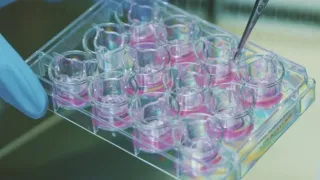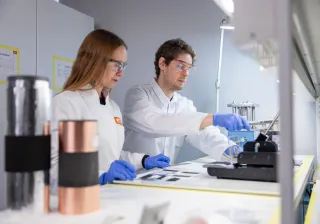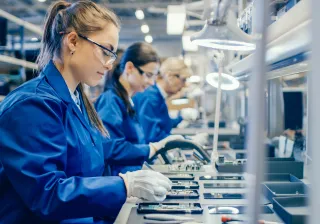The EU-funded InnCoCells project is revolutionizing the way cosmetic ingredients are manufactured from underutilized plant resources and marketed as sustainable products with proven scientific efficacy. Now the first ingredient candidates have reached late-stage development and can be prepared for the cosmetics market as novelskin care products with demonstrated antimicrobial, anti-inflammatory and anti-aging properties.
The project is funded by the European Commission with a budget of €7.9 million and is coordinated by the VTT Technical Research Centre of Finland. The number of partners in the consortium is 17, representing nine EU member states as well as the UK and Norway.
“After screening hundreds of extracts, we have selected 10 ingredient candidates derived from sustainable plant sources (cell suspension cultures, hairy roots or whole cultivated plants) that can be grown at the pilot scale to ensure a sufficient supply, or from abundant industry side streams. We are now switching from the discovery of plant extracts to the pre-commercial development of the most promising ingredients and the formalization of efficacy, sustainability and economic data.” says Dr Kirsi-Marja Oksman-Caldentey, the coordinator of the project.
Sustainability is determined by life cycle assessment, and the extracts have been characterized by metabolic profiling to identify the active compounds. These must pass various tests for safety and demonstrate bioactivity in human cells, tissue models and volunteers, an increasingly important task in the second half of the project.
The input of our Stakeholder Group and Scientific Advisory Board has been very important.
“We also value our interaction with the AIMS cluster, a collaboration between InnCoCells and the three other projects funded under the same Horizon 2020 topic – Algae4IBD, MARBLES and SECRETed – to explore common challenges in the sustainable utilization of natural products,” Oksman-Caldentey says.
A new consortium partner and new members of the Stakeholder Group and Scientific Advisory Board
InnCoCells is excited to welcome a new partner into the consortium. Ghent University (UGENT), Belgium, provides unique expertise in the large-scale extraction and analysis of cosmetic ingredients from plant biomass and will play a key role in the downstream processing of plant-based raw materials.
“The VEG-i-TEC research unit is excited to join InnCoCells, which will allow us to explore the potential of our diverse and sustainable extracts in cosmetic applications for the first time. This venture promises to significantly enhance our understanding of the bioactive compounds involved,” explains Dr Katleen Raes, principal research scientist at UGENT.
The project’s Stakeholder Group (SHG) comprises 19 representatives of the cosmetic industry, agricultural sector, academia and end-user groups whose role is to advise the project partners, helping to increase the impact and take-up of the results. The SHG ensures that the project’s SME partners select the most promising ingredients for further development.
The most recent additions to the SHG are Plinius Labs (Belgium), representing industries handling co/by-products, and Eger Group AS (Norway), representing end-users. Several members of the SHG, such as Chanel, La Prairie and Clariant, are working with our SME partners to develop specific InnCoCells ingredient candidates, focusing on sustainability and new types of compounds or effects.
“Ingredients for healthy ageing are of high interest to consumers, especially ingredients that are produced with little environmental impact,” says R&D Manager Outi Tarakkamäki from Berner Ltd, Finland.
The InnCoCells project also welcomes the appointment of Prof. Frédéric Bourgaud, University of Lorraine, France, as the third member of its Scientific Advisory Board, which provides a general steering role. He joins Dr Danièle Werck-Reichhart (CNRS, Strasbourg, France) and Prof. Antonio Granell Richart (UPV, València, Spain) and will provide a unique combination of strong academic and industry experience to guide the scientific and technical aspects of the project.
“I am delighted to join the InnCoCells project as a scientific advisor,” states Prof Bourgaud. “As the first European project entirely dedicated to research and innovation in the cosmetics sector, I found the idea of bringing together top university laboratories, small biotechnology companies and large stakeholders brilliant. This will undoubtedly help accelerate innovation in this crucial sector for the European industry.”
The InnCoCells project has received funding from the European Union’s Horizon 2020 research and innovation programme under grant agreement no 101000373. This funding will help to bring the InnCoCells revolutionary cosmetics research approach, especially in skin care, to the forefront of the cosmetics industry in Europe.






